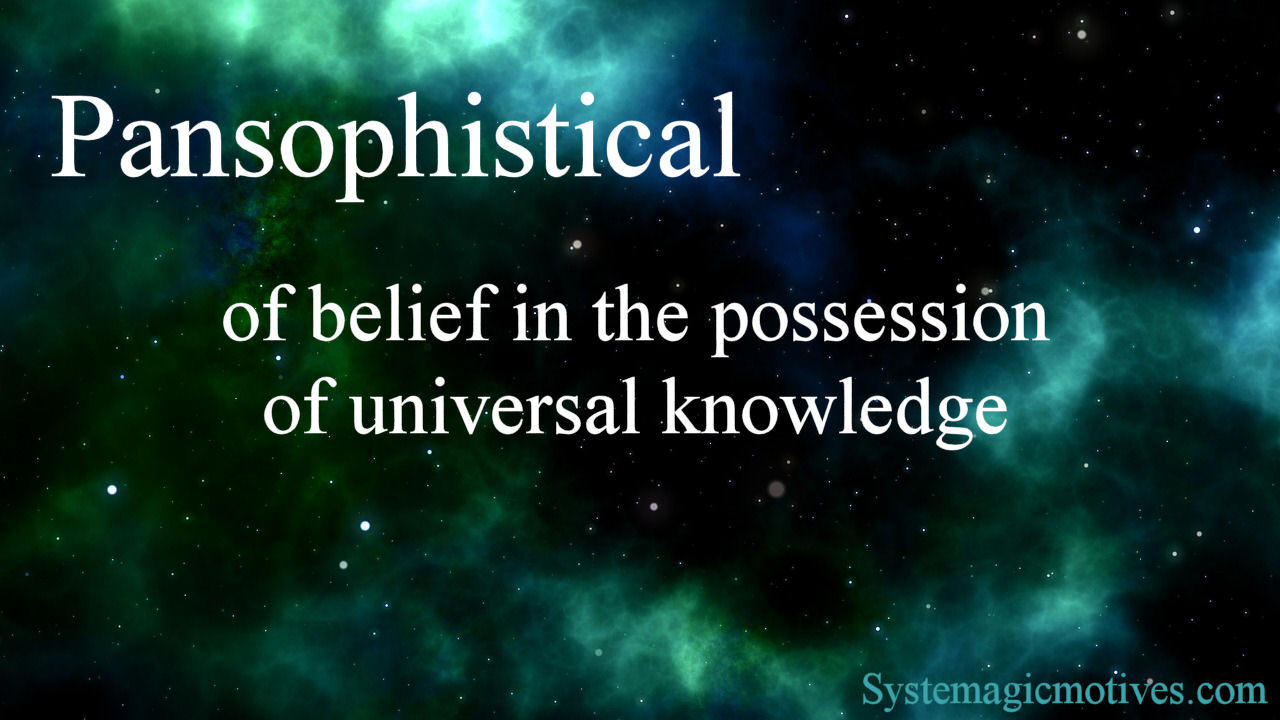
Pansophistical adj. Of belief in the possession of universal knowledge.
See also: Pansophical
Nouns: Pansophism, Pansophist, Pansophy
The word pansophistical is derived from pansophism, a philosophical term that means "universal wisdom" or the knowledge of all things. It combines the Greek pan (meaning "all") and sophia (meaning "wisdom"). A pansophistical approach or perspective refers to one that attempts to encompass all knowledge or wisdom, seeking to understand the entirety of existence in its fullest, most comprehensive form. It can often carry a sense of idealism, where the pursuit of knowledge is viewed as an all-encompassing, ultimate goal.
Often associated with philosophy, theology, or even an idealized form of education a pansophistical person, therefore, is one who claims�or aspires�to know everything, though the term can sometimes carry a hint of irony. Throughout history, thinkers like Comenius championed the idea of pansophia, believing that all knowledge should be interconnected and accessible to everyone.
While not commonly used in contemporary language, pansophistical can be found in older texts or philosophical discussions, especially in reference to systems of thought or figures who believed in achieving a universal, holistic understanding of the world. This term might describe an intellectual pursuit that seeks to unify various fields of knowledge into one coherent, all-knowing framework. In modern usage, pansophistical might describe someone whose wisdom seems boundless or, conversely, someone who merely pretends to have a grasp on all things. The word is rare but holds a poetic and almost mystical quality, evoking the image of sages, polymaths, and visionaries who seek a holistic understanding of the universe. Whether used earnestly or with skepticism, it captures the ever-elusive pursuit of complete knowledge.
Positive Nouns that Describe People
Everything Good about Everything Good
"There is no way to be pointed out save [except] the 'I AM'
It is the birth of the spirit." - Edgar Cayce Reading 262-10